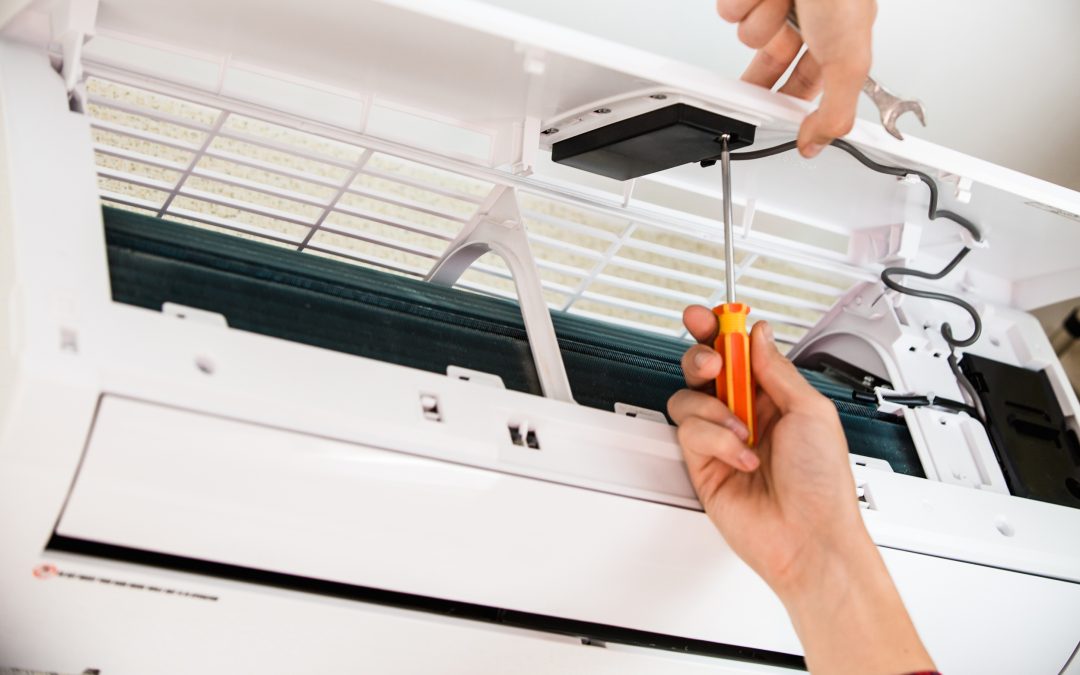However, one of the lesser-known culprits of AC filter clogging is animal hair. Pet owners and those living in areas with wildlife activity are especially susceptible to this problem, which can seriously affect the AC system and indoor air quality.
In this article, we will explore the impact of animal hair on AC filter performance, including how it gets into the system, its effects on the filter, and how to prevent and address hair buildup.
Why Do AC Filters Matter?
The filter’s job is to capture airborne particles such as dust, dirt, pollen, and pet dander that can cause respiratory issues or allergies, preventing them from circulating throughout your home or office. When an AC filter becomes clogged with contaminants, it can lead to many problems.
Clean AC filters offer several benefits, including improved indoor air quality, better system performance, longer lifespan of the AC unit, and cost savings. Regular maintenance ensures that your AC filter is functioning optimally and filters out pollutants from your indoor air.
On the other hand, dirty AC filters can have serious consequences. A clogged filter strains the AC system, which causes it to work harder and consume more energy. This can lead to a shorter lifespan of the AC unit, increased repair costs, and, ultimately, a complete system breakdown.
In addition, poor indoor air quality can exacerbate health issues for those with respiratory conditions, allergies, or weak immune systems.
The Problem Of Animal Hair In AC Filters
While AC filters are designed to trap particles like dust and pollen, they can also become clogged with animal hair. Pet owners or those living in areas with wildlife activity are especially susceptible to this problem. Animal hair can enter the AC system through various means, including being carried in on clothing or shoes, blown in through open windows or doors, or coming from pets that spend time indoors.
When animal hair accumulates in the AC filter, it can restrict airflow, reducing the system’s efficiency and causing it to work harder. Over time, this can lead to increased energy consumption, higher utility bills, and potential damage to the AC unit. In addition, animal hair can attract other contaminants, such as dust and dirt, further reducing the filter’s effectiveness.
Common animals that can cause hair buildup in AC filters include dogs, cats, rabbits, rodents, and even birds. Pet hair can be especially problematic as it can contain dander and other allergens that can worsen respiratory conditions or allergies.
DIY Cleaning Tips For Animal Hair In AC Filters
Regular cleaning and maintenance of your AC filter are crucial in preventing the buildup of animal hair and other contaminants that can cause clogging and decreased efficiency. While it’s recommended to have a professional HVAC technician perform regular maintenance and cleaning, you can use some DIY cleaning tips to keep your AC filter clean and functioning optimally.
- Vacuum The Filter: Using a vacuum with a brush attachment, gently vacuum the surface of the filter to remove any loose debris or hair. Be careful not to damage the filter material or bend any fins.
- Wash The Filter: If washable, gently rinse it under cool water to remove any remaining debris. Avoid using hot water or scrubbing too vigorously, which can damage the filter material.
- Dry The Filter: Once it has been washed, let it air dry completely before reinstalling it. Do not use a dryer or apply heat to speed up the drying process, which can also damage the filter material.
- Use A Lint Roller: For hard-to-reach areas or stubborn hair buildup, use a lint roller or sticky tape to remove the hair from the filter gently. Be careful not to press too hard or damage the filter material.
- Use A Specialized Filter: Consider using a specialized filter or air purifier to capture animal hair and other contaminants. These filters often have a higher MERV rating, meaning they capture smaller particles like hair and dander better.
- Keep Pets Away From The AC Unit: To prevent hair from entering the AC system, keep pets away and seal off any gaps or entry points.
When To Replace AC Filters
Regularly replacing your AC filter is crucial in maintaining the efficiency and longevity of your system. Here are some important things to consider when determining when to replace your AC filter:
Signs That Indicate The Need For Filter Replacement
Several signs indicate the need for AC filter replacement, including reduced airflow, increased energy bills, and decreased indoor air quality. Other signs may include strange noises from the AC unit or a noticeable increase in dust or debris in your home. If you notice any of these signs, it’s likely time to replace your AC filter.
The Frequency Of AC Filter Replacement
It can vary depending on factors such as the type of filter, the level of indoor air pollution, and the frequency of AC usage. As a general rule, replacing your AC filter every year is recommended. However, if you have pets or live in an area with high pollution levels, you may need to replace your filter more frequently. On the other hand, if you live in a less polluted area and use your AC less frequently, you can go longer between filter replacements.
Choosing The Right Type Of AC Filter
When choosing an AC filter, it’s important to consider factors such as filtration efficiency, MERV rating, and the type of material used. Fibreglass filters are the most basic and affordable type, but they may need to be more effective at capturing smaller particles like pet hair and dander.
Pleated filters, on the other hand, have a higher MERV rating and are better at capturing smaller particles but may also be more expensive. Electrostatic filters use a static charge to attract and capture particles. HEPA filters are the most efficient at capturing small particles and are often used in hospitals and other medical settings.

